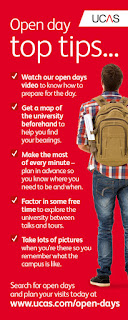Don’t you hate it when your alarm goes off and for a split second you think it’s a mistake? There’s no reason to get up and you can just snuggle down and stay in bed. Then it hits you: it’s Monday morning and it’s time to get up for school. However there are thousands of young people around the world that don’t have the same feeling, because school isn’t an option for them due to war and conflict.
That’s why as an education charity, UCAS is supporting UNICEF’s campaign to protect children and schools in emergencies. You can show your support too just by
adding your signature.
Samer’s is someone who’s been affected by conflict. Read his story…
Samer missed a year of high school because of the conflict in Syria, but eventually finished his secondary studies and was accepted to study business at the University of Damascus. But the war interrupted his plans again. Samer and his family were forced to flee to Jordan. While making their escape, they witnessed the horror of war first hand as three people they were travelling with were killed.
“At first the fighting was with bullets, but when I saw bombs we decided to leave. It’s like an earthquake when the bomb hits the ground. We were so scared,” Samer recalls.
Now at a refugee camp in Jordan, Samer is continuing his studies. When he left Syria he brought two language books with him and has since taught himself to read and write in English. He was also given a guitar and has learned how to play. Music and poetry are helping him cope, as he anxiously waits to find out if he can finally go to university.
Join over 60,000 people who have already shown their support for young people like Samer. Sign up to support the Unicef campaign by adding your signature
here. It costs nothing and only takes a moment.
Image credit: © UNICEF/Jordan-13/Noorani




